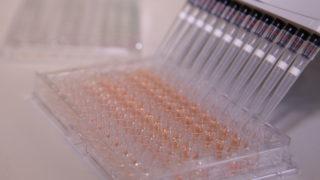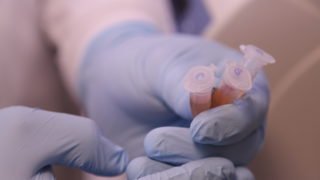Category: Publications
Search News
Categories
Archives
‘The neighbouring effect’: Centrosomal abnormalities drive invasion of surrounding cells
19th November 2018
Centrosomal amplification, a particular change that occurs within some cancer cells, has been shown to drive the invasion of neighbouring cancer cells.
Read moreNew phase III clinical trial using combination therapy extends survival in triple-negative breast cancer
22nd October 2018
Research provides new hope for people with an aggressive type of breast cancer.
Read moreImmunotherapy shows promise for patients with metastatic triple-negative breast cancer
17th October 2018
Immunotherapy has been shown to confer an encouraging survival benefit in patients with metastatic triple-negative breast cancer (mTNBC).
Read moreStudy links widely-used drug azathioprine to skin cancers
14th September 2018
A drug used to treat inflammatory bowel disease and arthritis, and prevent organ rejection in transplant patients, has been identified as an important contributor to skin cancer development in a study by researchers from Queen Mary University of London, including our Barts Cancer Research UK Centre (BCC) Bioinformatics team, the University of Dundee and the Wellcome Sanger Institute.
Read more‘Chromosomal Catastrophes’ in Colorectal Cancer
5th September 2018
Understanding how cancers develop and change over time is a big challenge. For obvious reasons, scientists can’t simply sit and watch a cancer growing in a person. Members of the Evolution and Cancer Laboratory at the BCI, including lead author Dr William Cross, were part of a collaborative team that set out to identify when particular genetic changes arise during bowel cancer development.
Read moreSNPnexus: Assessing the impact of genetic variation
30th August 2018
A team of researchers from BCI’s Centre for Molecular Oncology, led by Prof Claude Chelala, have made new developments to SNPnexus- a computational tool that allows for the assessment of the functional effect of sequence variants within the genome.
Read more





